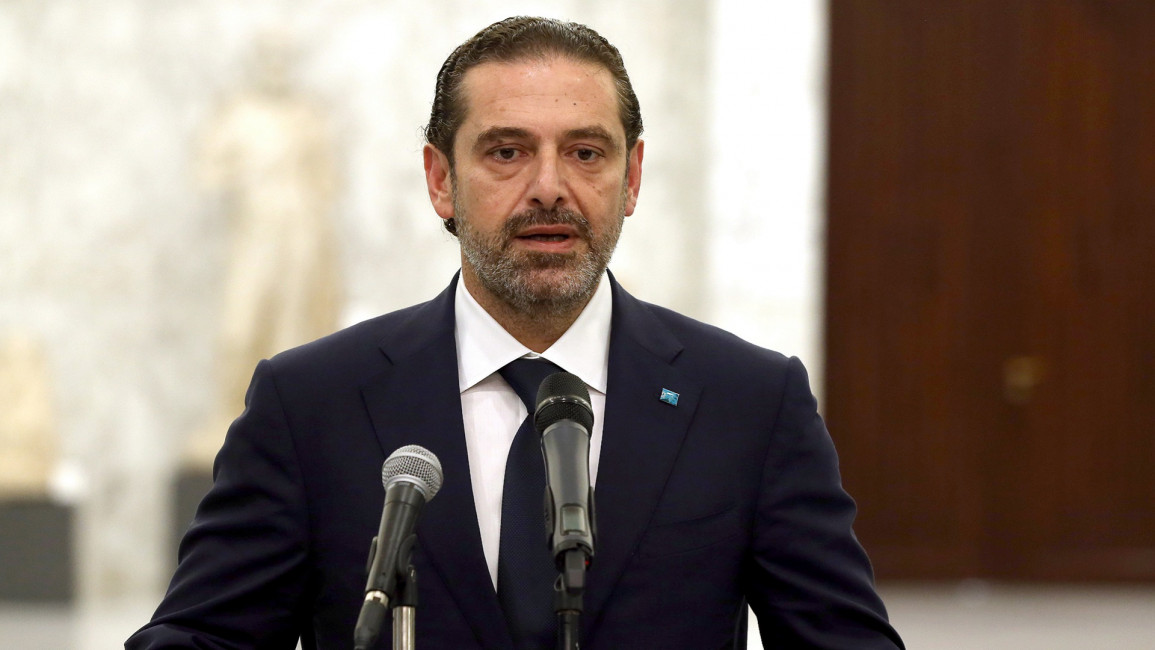Lebanese PM-designate Saad Hariri resigns, spelling further political uncertainty
Lebanese Prime Minister-designate Saad Hariri announced his resignation on Thursday after a final proposal to form a cabinet was rejected by President Michel Aoun.
Hariri had met with Aoun in the Baabda presidential palace on Wednesday to discuss his proposal of a 24-member cabinet. On the day after the meeting, Hariri announced his resignation, concluding his statement by saying "God help the country."
Hariri's resignation signals further unknowns for Lebanon's political future. The country has gone without a government for nearly year and is in the throes of an economic death spiral.
In a sign of deepening uncertainty, in just twenty minutes after his resignation, the value of the Lebanese lira was trading at an all-time low of 21,000 lira to the dollar, from 19,000 earlier in the week.
Hariri was appointed to form a government nearly nine months ago in October 2020 after the former government stepped down in the wake of the August 4 Beirut port explosion. Hariri's attempts to assemble a cabinet went virtually nowhere as political disagreements between him on one side and President Aoun and his parliamentarian son-in-law, Gebran Bassil, on the other led to a paralysing gridlock.
Hariri and Aoun disagreed on key elements of the cabinet makeup, with Hariri accusing Aoun of wanting to guarantee himself veto power in the new government by securing a number of his own ministers in the ministerial roster. Aoun has denied this claim.
Hariri's resignation comes as Lebanon's political and economic crisis worsens, with a deteriorating security situation and shortages of basic goods like medicine, baby formula and fuel. Caretaker Prime Minister Hassan Diab warned reporters last week that Lebanon was on the precipice of a "social explosion," and that it desperately needed international assistance to prevent complete collapse.
The international community has unanimously refused to give Lebanon's government any financial aid until it forms a new government and implements what it deems to be necessary political reforms. International aid has mostly taken the form of direct humanitarian relief and in-kind donations to the Lebanese military, which is seen by many western governments as a counterbalance to the Iran-aligned Hezbollah.
Hariri did not specify what would come after his resignation, but it is speculated that he could appoint a successor as the prime minister designate. In addition, with elections slated for March 2022, it is possible he could use the interim period to consolidate his political base and prepare himself for another electoral campaign.


![President Pezeshkian has denounced Israel's attacks on Lebanon [Getty]](/sites/default/files/styles/image_684x385/public/2173482924.jpeg?h=a5f2f23a&itok=q3evVtko)



 Follow the Middle East's top stories in English at The New Arab on Google News
Follow the Middle East's top stories in English at The New Arab on Google News


